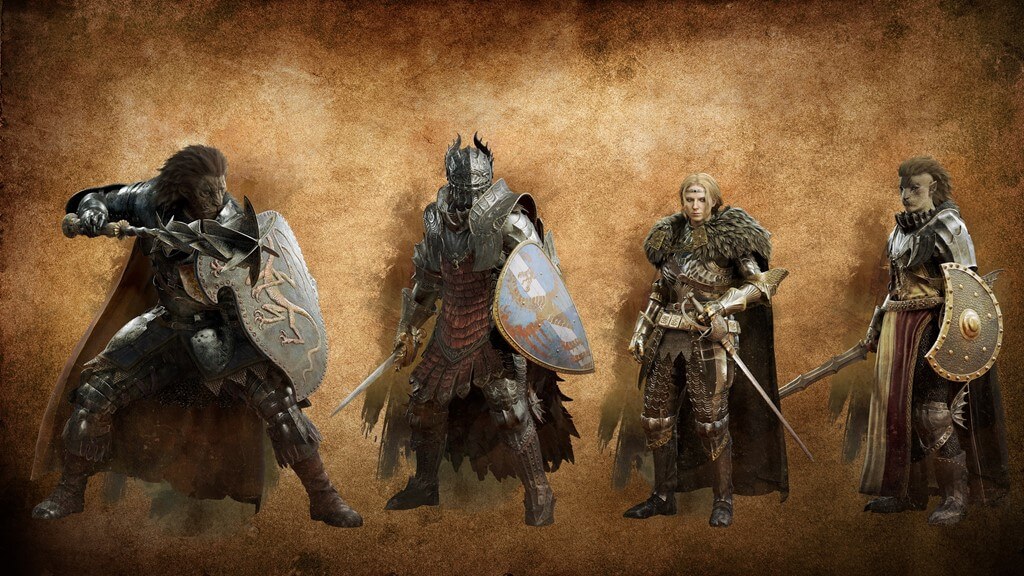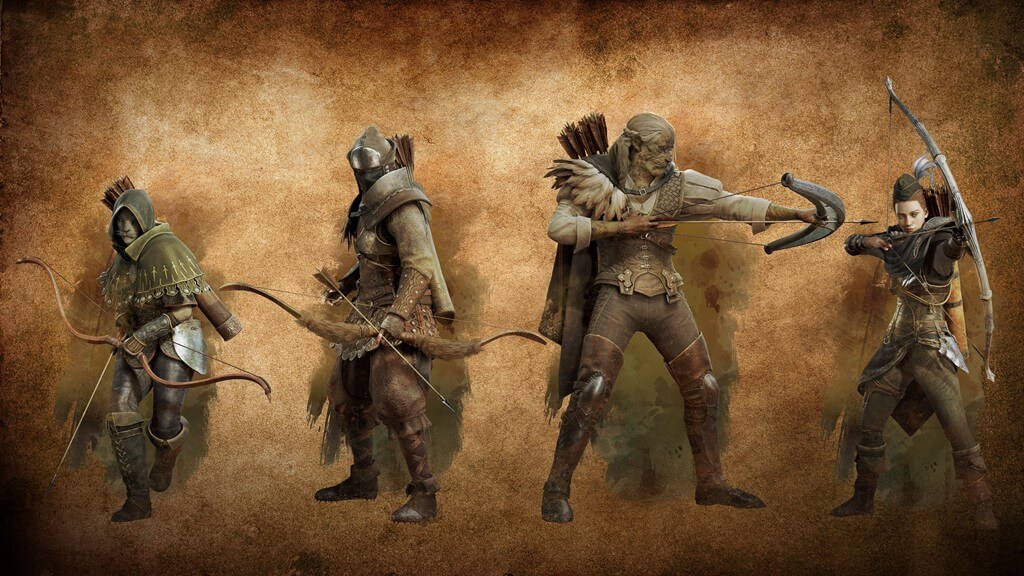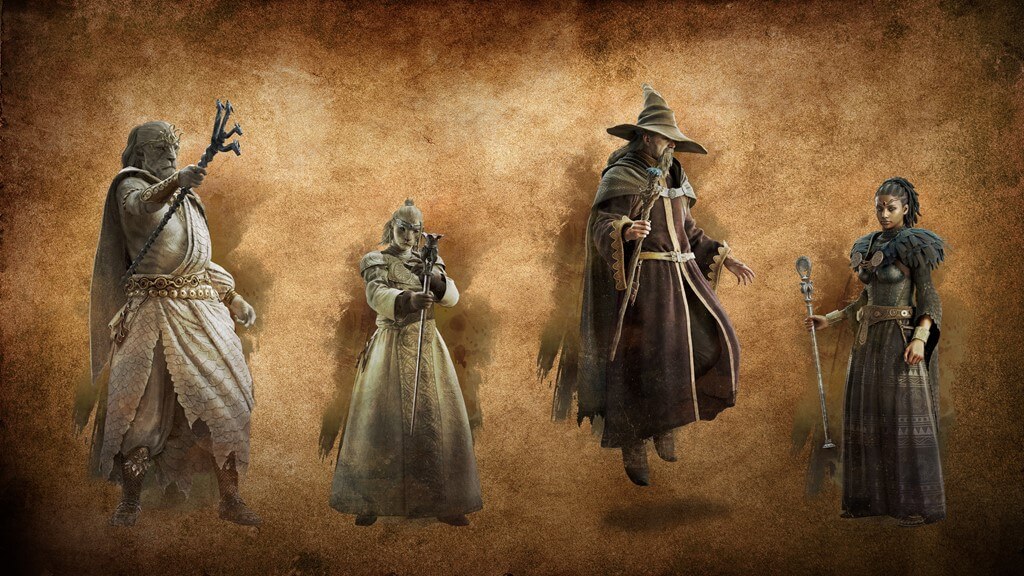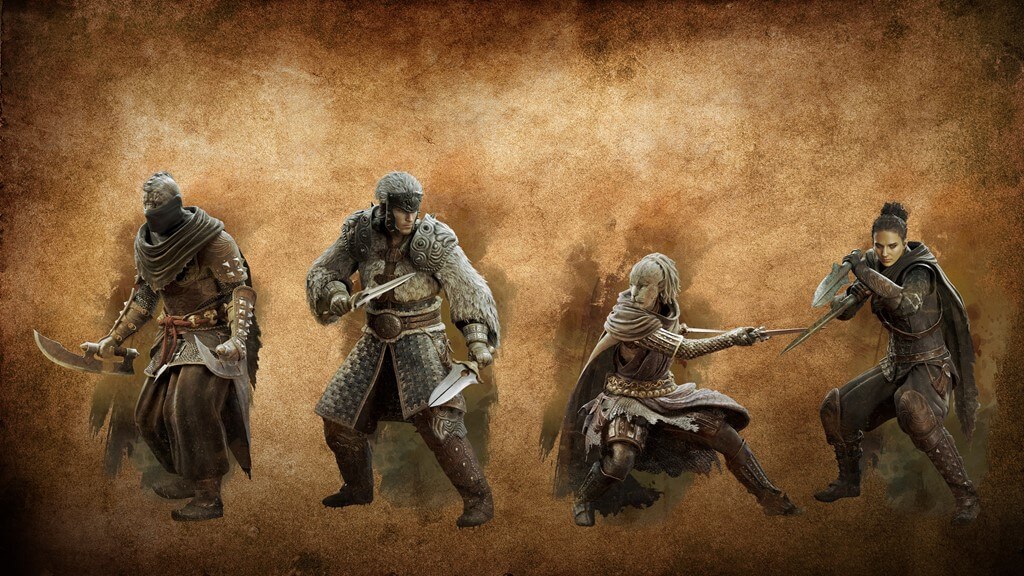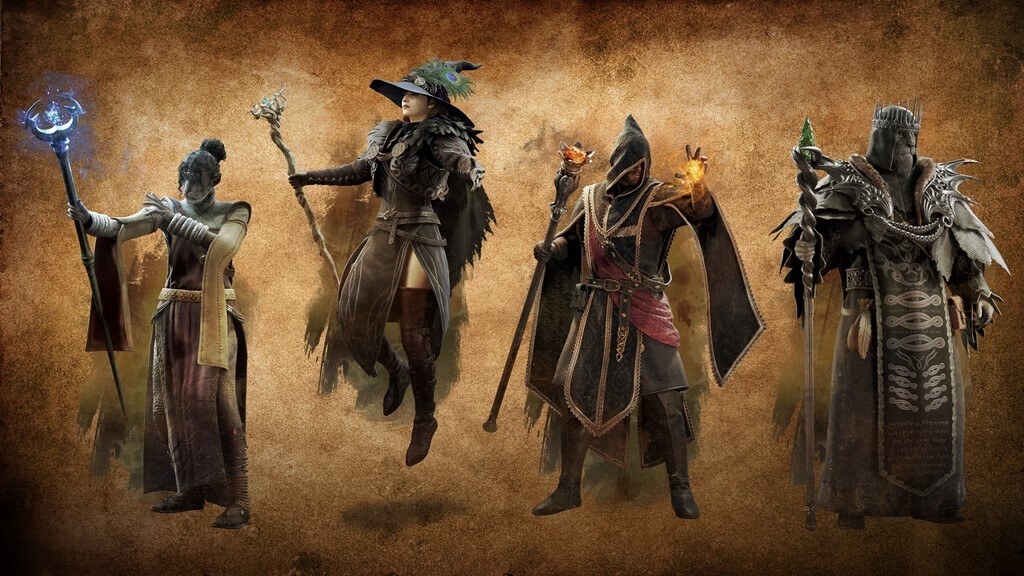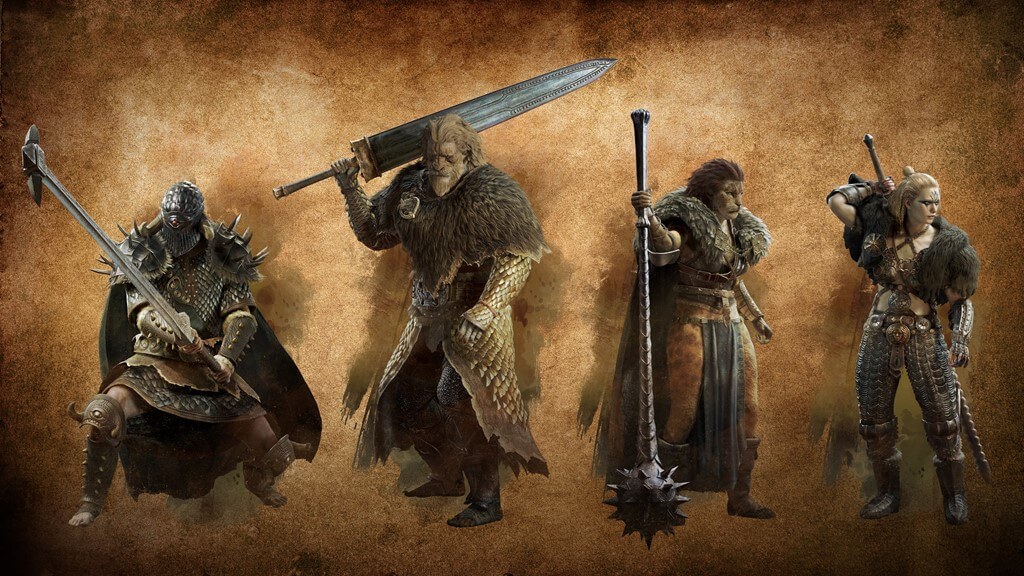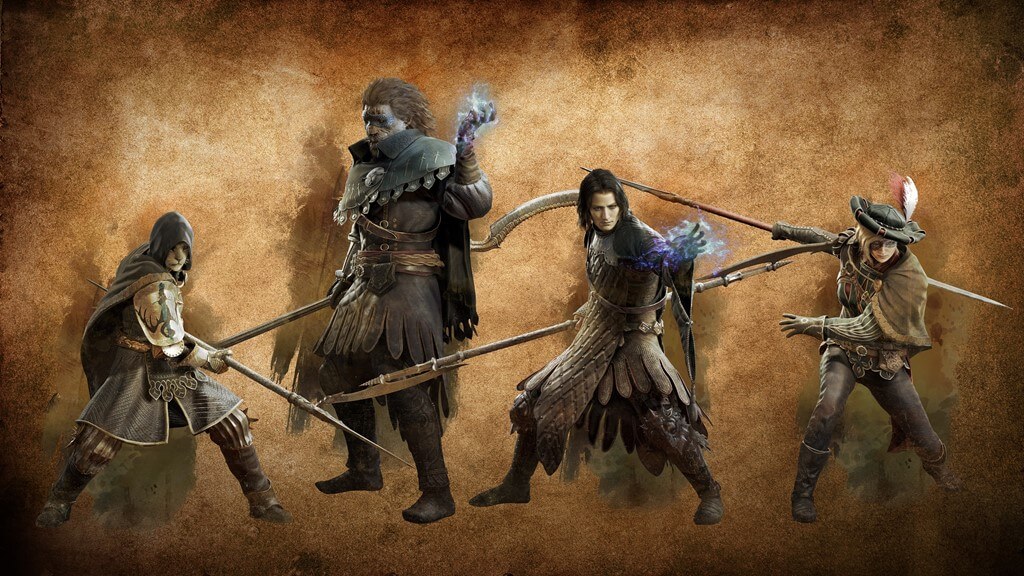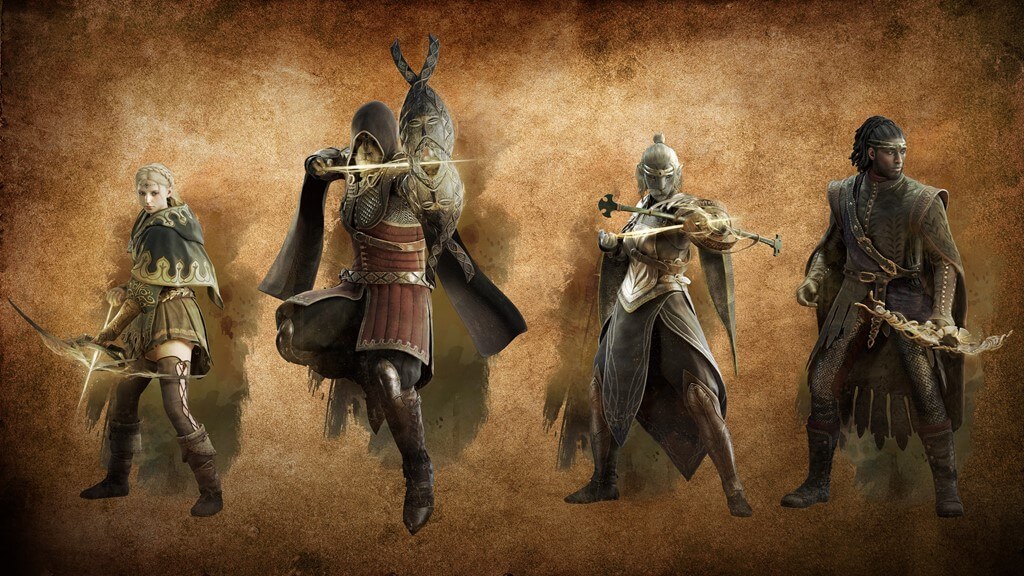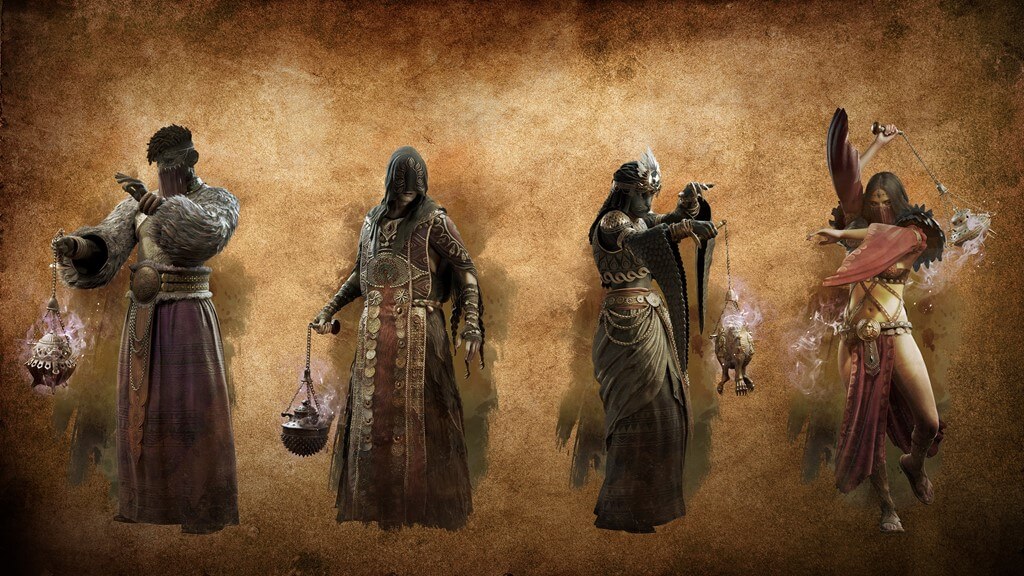Dragon’s Dogma 2 Vocations (Starter, Advanced, and Hybrid)
In this guide, we’ll cover all the Dragon’s Dogma 2 vocations and their playstyles.
The release of Dragon’s Dogma 2 is finally here, and it’s been 12 years since the first Dragon’s Dogma was released – what an incredible experience it was, scaling giant monsters, and exploring a vast land with unique vocations.
Dragon’s Dogma 2 is no different from its predecessor regarding unique vocations. Some return, but quite a few are new or have been replaced with a more structured design.
Typically known as character classes or classes in other RPGs, Dragon’s Dogma Vocations are split up into three categories: Starting, Advanced, and Hybrid. Ten vocations are available in total compared to the nine in the first.
It’s worth noting that pawns will also have vocation choices from two categories, starter and advanced, but they cannot choose hybrid vocations.
If you’ve played the previous game, you’ll notice that Strider, Assassin, Ranger, and, quite unfortunately, Mystic Knight have been replaced. Things aren’t as they seem, though. While these vocations may be missing in name, some are still in Dragon’s Dogma 2. RIP, Mystic Knight, though.
Capcom has released a quiz to help you pick your vocation, check it out here.
Starter Vocations
Dragon’s Dogma 2 has four starter vocations, each categorized based on its weapon: the Fighter, your typical melee with a shield; the Archer, who specializes in ranged combat; the Mage, who is a magic user with a focus on support magic; and finally, the Thief, whose weapon of choice is his daggers and who specializes in reaching those hard-to-scratch places on larger foes.
In the previous Dragon’s Dogma, there were three starter vocations. The Strider from Dragon’s Dogma 2, which used both Dagger and Bow, was separated into two vocations; this may sound unfortunate for those who wish to use both Dagger and Bow; if that’s the case, you may like the sound of Wayfarer.
Fighter
The Fighter, a returning vocation from the previous game, is your typical fantasy Sword and board combatant. This vocation is primarily thought of as the “Tank” of the game, but don’t be fooled, as he’s as deadly as any other class in combat, as he can use his shield defensively and offensively by blocking and deflecting blows back onto an attacker.
The Fighter can also utilize Taunts to keep monsters focused on him, allowing your party room to breathe. The Fighter is a solid choice for a player or pawn. It will be an easily recognizable vocation for anyone stuck on what to choose.
Archer
The Archer is one of the new starter vocations to Dragon’s Dogma 2. It is split from the previous game’s Strider vocation, which utilized both dagger and bows. The Archer is a strictly focused long-ranged damage dealer. Although it will not have as many hard-hitting attacks as melee-focused classes, it can fire arrows in impressively quick succession, overwhelming enemies with sheer volume, doing so at safe distances and well behind allies.
The Archer also has special arrows at its disposal, similar to how Rangers and Striders did in the original Dragon’s Dogma; this will give the Archer alternative ways to handle foes as these Arrows can contain debilitations like burn to set foes alight.
If the Archer is anything like the Ranger from Dragon’s Dogma, it will be a powerful class with many ways to deal with all kinds of foes.
Mage
The Mage is a magic-focused support class with access to some offensive spells. While not as destructive as its Sorcerer counterpart, the Mage instead has access to an incredible arsenal of spells to cure debilitations, heal the party, enchant allies’ weapons with different elements, and unleash spells to control the flow of combat by hastening allies or disrupting enemy movement.
It’s worth emphasizing that in the original Dragon’s Dogma, the Mage was the only class with healing capabilities, which will likely remain the case in Dragon’s Dogma 2; this made the vocation exceedingly valuable in a team setup, and because of this, the vocation was typically chosen for pawns, as there weren’t many players who wanted to take a more passive role in a single-player action game; that said, it’s still a unique style of play and worth trying out if you’re interested in playing a more supportive role for your pawns.
Thief
The Thief is the Dagger-focused vocation of Dragon’s Dogma. Like the Archer, it’s a class that was partly stripped from the Strider. It has a more flashy, fast-paced approach to combat and is the only class capable of dodging attacks as a defensive option.
Its strength lies in its ability to easily and quickly climb onto larger opponents, latch on, and stay latched on for extended periods. This allows it to reach weak spots on larger foes significantly easier than most vocations, which works great for those stabby little daggers. If you’re a player who enjoys climbing on top of giant foes often, the Thief should definitely be a consideration.
In Dragon’s Dogma, the Strider was known for its swift and explosive damage at times, with skills like Skull Splitter, which are indeed returning in Dragon’s Dogma 2 for the Thief, so keep an eye out for Skull Splitter.
Advanced Vocations
These are similar to sub-classes or sub-vocations; there are two in total: the Sorcerer, a sub-class of the Mage, in which they drop the entirety of their supportive capabilities to focus wholly on unleashing incredibly destructive magic, and the Warrior, a sub-class of the Fighter, who instead wields a ferociously large two-handed weapon, relinquishing a lot of its defensive capability for raw power.
Sorcerer
The Sorcerer is the Mage’s sub-vocation that focuses on battle magic and forgoes most, if not all, of its support capabilities. The Sorcerer in Dragon’s Dogma has a few support spells, but in DD2, they’ve all been shifted to the Mage to create a more significant distinction between the vocations.
A well-known vocation from the previous game and a favorite considering what the vocation can do, the Sorcerer is well known for its sheer destructive magical power. It is capable of colossal battlefield-wide spells that devastate and incapacitate all manner of foes. The weakness of the vocation are the lengthy cast times, but no other game has ever done a caster class quite like Dragon’s Dogma.
The sheer destruction you can unleash on foes is an experience you are unlikely to get in other games, making it a definitive go-to vocation for those who enjoy casters.
Warrior
The quintessential Warrior, masters of two-handed weapons, can wield greatswords and hammers; warriors are essentially nothing but strength and brute force incarnate.
They rely on well-timed swings and can topple foes twice their size. The Warrior is the go-to vocation for Berzerk fans everywhere.
It does lack defensive capabilities, but the Warrior is an absolutely unmoveable force and is much less likely to topple over when hit. This allows him to move more freely through blows or stand upright when charging up attacks against enemies; this guarantees the player the ability to aim or charge an attack fully before cracking down on an enemy’s skull.
The Warrior is capable of enormous burst damage; with long wind-up times, they generally do not haphazardly swing, so it is definitely a vocation designed for those that like a more skill-influenced style of play, rewarding well-timed and well-placed swings that deal devastating damage.
Hybrid Vocations
These Hybrid vocations typically combine aspects of the starter classes to create entirely new classes; for example, the Magick Archer combines Archer and Mage to create an Archer who infuses his arrows with spells for devastating effect. Similarly, the Mystic Spearhand combines Fighter and Mage, utilizing a spear as its primary weapon instead of the Fighter’s typical repertoire and taking advantage of magic to quickly navigate the battlefield.
Something interesting about this is that in the original Dragon’s Dogma, the Magick Archer was based on the Strider and the Mage. Thus, it wielded a Magic Bow and Staff or Daggers and was capable of both Magic Bow and Dagger skills. This made the class incredibly versatile and, hence, quite enjoyable; instead, it appears that in Dragon’s Dogma 2, the Magick Archer will be just a magic bow-wielding class.
Dragon’s Dogma 2 will consist of four Hybrid classes: the Magick Archer, Mystic Spearhand, Trickster, and Wayfarer. These classes will be unlocked through NPCs in the world who are said to be masters in their craft.
Remember that the Hybrid vocations are also exclusive to the player Arisen and can’t be selected for pawns.
Mystic Spearhand
This vocation was probably the biggest surprise of Dragon’s Dogma 2, as it’s an entirely new class that wasn’t in Dragon’s Dogma 1. The Mystic Spearhand utilizes a Double-Bladed Spear with Magic to rapidly move and strike foes all over the battlefield, even capable of teleporting itself on top of larger foes. It can also cast large crowd-controlling spells to paralyze a group of foes or throw objects in the world at your chosen targets; this makes the class incredibly versatile in long-range and close-quarters combat.
It’s its Double-Bladed Spear, its focus on quick teleport-like movements, and its odd focus on lightning-based attacks. It almost feels like you’re playing a fantasy-based Jedi- or Sith.
It’s definitely one of the more unique vocations available in Dragon’s Dogma 2, and it’s likely a vocation that everyone will play at least once.
Magick Archer
An incredibly popular class from Dragon’s Dogma, the Magick Archer can infuse his long-ranged magical bow attacks to fire a flurry of arrows in an instant or generate a group of rapidly bouncing lightning arrows that continually strike foes in an enclosed space for incredible amounts of damage. He can also fire support-based arrows to assist and revive fallen allies.
In the first Dragon’s Dogma, the Magick Archer had access to the Mage’s Staff for his supportive capabilities; in Dragon’s Dogma 2 they’ve focused more on allowing him to cast supportive skills with his Magic Bow. The Magick Archer was also capable of wielding Daggers instead, and this gave the Magick Archer a melee option, as well as the ability to climb and single target focus large mobs if needed; in Dragon’s Dogma 2, this has been replaced with a more unique mechanic that allows the Magick Archer to switch into an alternative aiming mode with his Light and Heavy attacks, allowing him to switch between a more single target focused mode or a multi-target focused attack mode.
These were interesting alterations to the Magick Archer, and I guess it’ll remain a fan favorite in Dragon’s Dogma 2.
Trickster
The Trickster is an entirely new and unique approach to vocation design; the Trickster uses a new weapon called the Censor, which allows him to conjure illusions that the Censor creates. The Trickster has no direct ways of dealing damage. Instead, it is a support-focused vocation with ways to trick and deceive foes into doing things that may not be in their best interest; one of these is the ability to create the image of a bridge that foes believe they can walk on, only to plummet to their deaths as they fall through the illusion and down a canyon.
They can also greatly enhance pawns, boost their offensive capabilities, and even allow allies to fight even if their health runs out.
The Trickster can also detach their spirit from their bodies and scout distant places undetected with their spirits. This is a unique vocation with a lot of potential; if something like that interests you, try the Trickster.
Wayfarer
The Wayfarer, similar to the Trickster, is set to be one of the more unique vocations available. He or she can wield the weapon of any vocation and thus use the skills available to every vocation, essentially being a Jack of all trades.
The sheer versatility and adaptability that come from this will be incredible, allowing the Wayfarer to deal with almost any combat scenario. This is the vocation for those who like to take parts from every vocation and create something unique.
The Wayfarer answers those who might miss the Strider from Dragon’s Dogma 1, allowing those players to carry both Dagger and Bow again. Still, the sheer freedom and potential here likely mean that most players will end up playing this vocation as the combinations you can make, even if they aren’t great, will be catered to what each individual player likes to use.
The only downside to all of this is that the vocation will have lower base stats than most of the other vocations as it spreads its stats over a broader area; this means it will be slightly less potent than a Sorcerer with Magic or less powerful than a Warrior with a Great Sword. Still, it’s rewarded with the versatility that having both weapons provides.
 Download APP
Download APP